Search titles
Displaying results 21 to 30 of 1137.

East Asia Forum Quarterly: Volume 17, Number 1, 2025 »
Publication date: March 2025
The global landscape has shifted dramatically since Donald Trump’s return to the presidency in January 2025. His decision to exit the Paris Agreement and impose heavy tariffs has escalated uncertainty surrounding both climate action and the global economic order. This edition of East Asia Forum Quarterly explores how ASEAN and its regional partners can step in to safeguard multilateral trade and climate cooperation, advocating for green trade policies and sustainable investment. The region has the potential to reshape the global response to climate change and maintain economic stability through strategic collaboration.
Download for free
Not available for purchase

Lilith: A Feminist History Journal: Number 30 »
Publication date: March 2025
The 2024 issue of Lilith benefited from some unusual contributions from international scholars from South Africa, Finland, the US and the UK, and from Australian-based researchers at the University of NSW, The Australian National University, Western Sydney University, the University of Melbourne, the University of New England, James Cook University, the Australian Catholic University, Charles Darwin University and the University of Wollongong. Many of these researchers participated in our 2023 Lilith Symposium at ACU Melbourne on ‘Gender & Joy’ in feminist history, which benefitted from inspirational keynote addresses by Professor Katie Barclay (Macquarie University) and Dr Yves Rees (La Trobe University). This issue contains articles on historical themes as diverse as African pottery, theology, poetry and Black women’s joy, Paris trans identity and cabaret theatre, First World Wartime cross-dressing, British Enlightenment women’s writing, early twentieth-century domestic servants in South Australia, and working girls’ clubs in Chicago. Our eight book reviewers evaluated works on visual cultures of pregnancy, Japanese biopolitics of reproduction, international women peace advocates, women in the Whitlam government, the wife of George Orwell, the global history of courtship, and both Pakistani and Australian histories of motherhood.
As in other issues of Lilith in recent years, 2024 saw a balance of local Australian histories which uncovered new aspects of gendered concepts and identities of the past, along with comparative intercultural inquiries, highlighting the importance of internationalisation in movements beginning on one context but later influencing several others. This volume also showcases the engagement in history of scholars from other disciplines who share our desire to honour and celebrate the joy, laughter, struggle, resilience and survival of women and gender-diverse people of different races and cultures, past and present, across the world.
Download for free
Not available for purchase
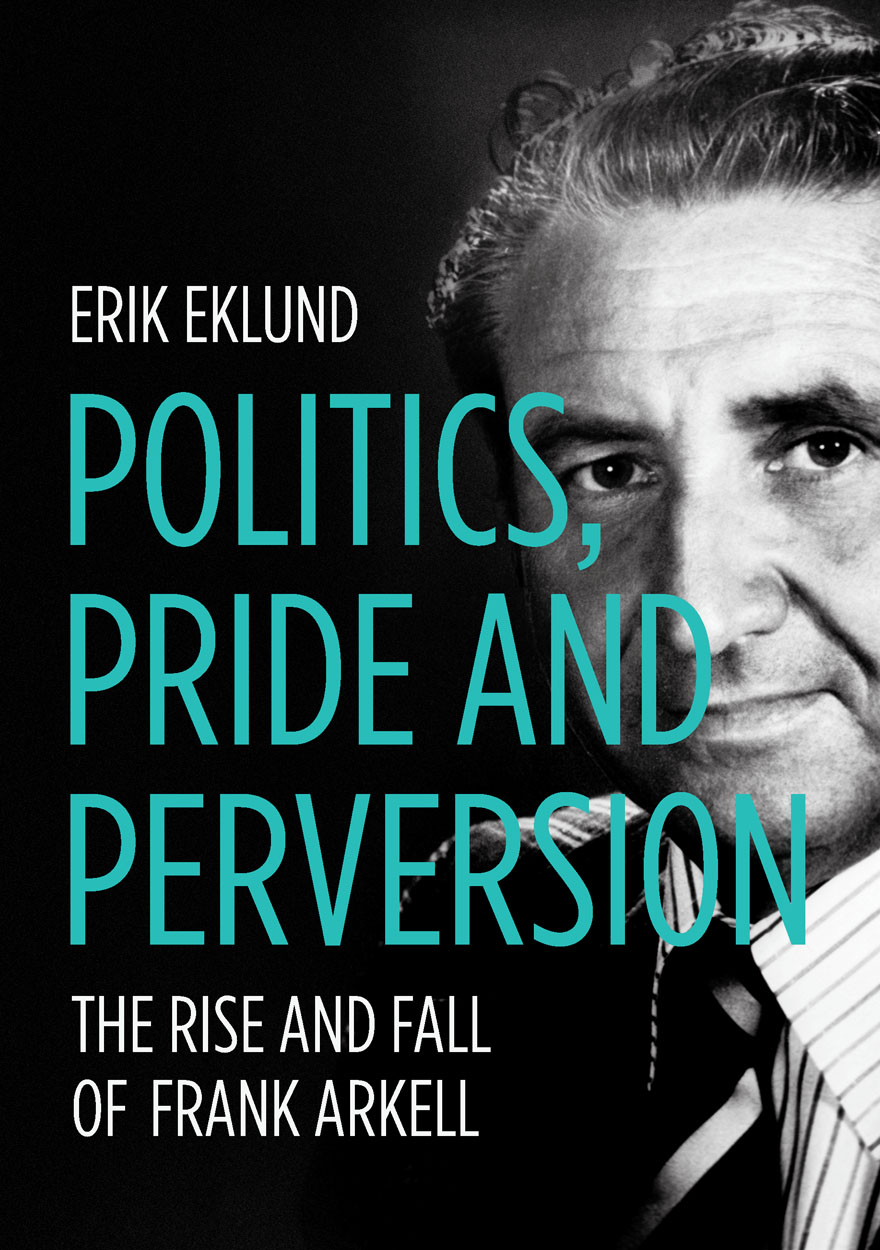
Politics, Pride and Perversion »
The Rise and Fall of Frank Arkell
Authored by: Erik Eklund
Publication date: March 2025
Frank Arkell (1929–1998) was the most successful politician of his generation; an Independent who served as Wollongong’s Lord Mayor (1974–1991) and state member (1984–1991). Arkell dominated Wollongong public life with unstoppable energy, eccentric flair, and a single-minded determination to support the city through economic restructuring. Despite his popularity, at the edges of public consciousness there was growing disquiet over Arkell’s private life …
‘A compelling biography … Eklund provides a nuanced exploration of Arkell’s relentless efforts to transform Wollongong from a ‘steel city’ to the ‘Leisure Coast’, as well as his connections to an extensive paedophile network exposed during the 1997 Wood Royal Commission …’
— Associate Professor Jayne Persian, University of Southern Queensland
‘Eklund discloses the tragic consequences of unbridled male lust, deep social inequality and unaccountable class power … we have here a shocking story of sexual abuse and official corruption that brought untold suffering, political disgrace and, in the end, a brutal murder.’
— Professor Frank Bongiorno AM, author of Dreamers and Schemers: The Political History of Australia
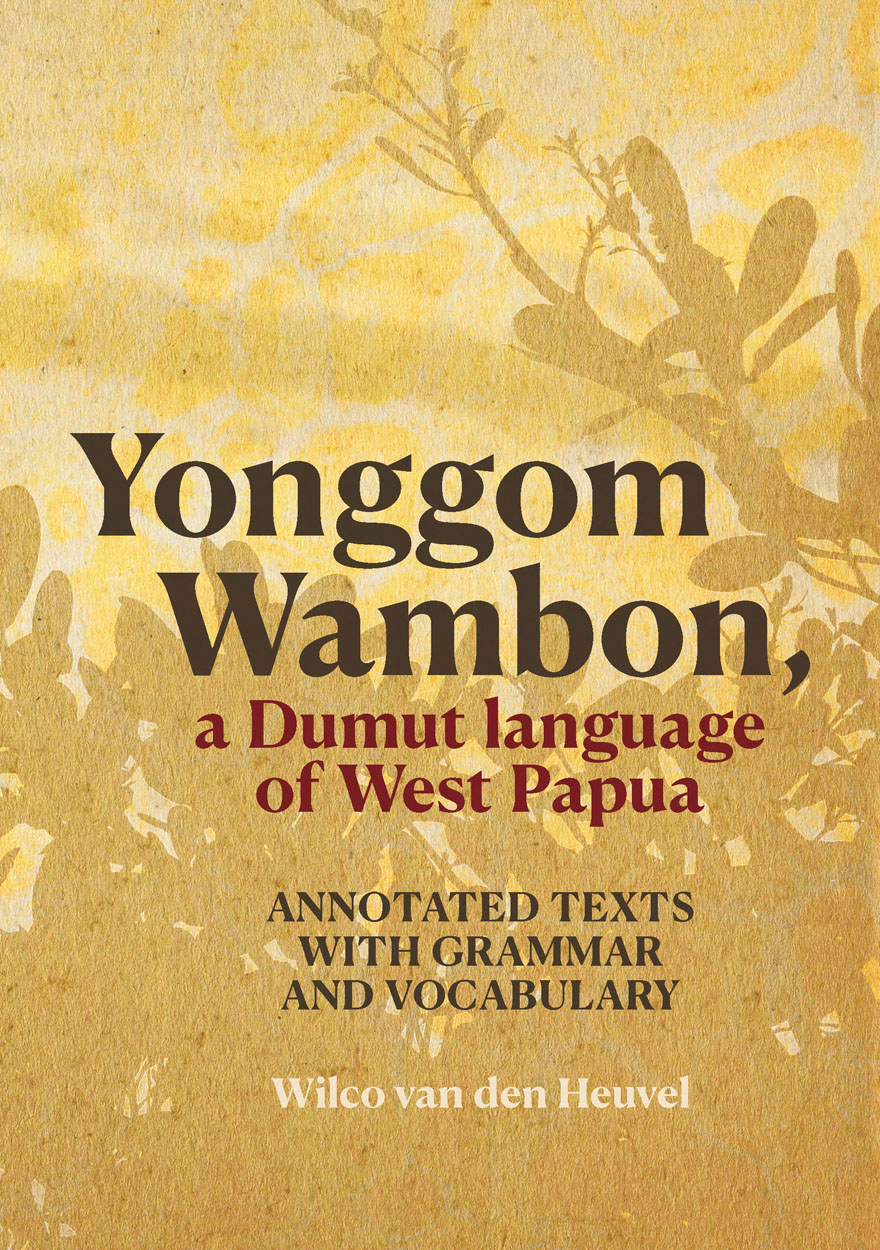
Yonggom Wambon, a Dumut language of West Papua »
Annotated Texts with Grammar and Vocabulary
Authored by: Wilco van den Heuvel
Publication date: February 2025
In this book, the author, Wilco van den Heuvel, intends to make Drabbe’s 1959 description of (Yonggom) Wambon available to a wider scientific public. As such, the book is in line with an earlier reanalysis by the same author of Drabbe’s description of Aghu (1957), which was published in 2016.
In only 45 pages (!), Drabbe managed to present an incredible amount of Yonggom Wambon language data. The current work takes over 400 pages for their re-representation and reanalysis, and includes a 500-item wordlist that Drabbe had written a few years earlier. This book attempts both to increase our understanding of the peculiarities of this individual language, and to contribute to our understanding of the past and present of this still very under-documented part of our globe. An area where—as Drabbe foresaw—minority languages are disappearing, giving way to a common (national) language.
The author expresses his gratefulness to Drabbe, for having unravelled some of the complexities of the languages in this area, which, in Drabbe’s words, form ‘an eldorado for the practitioners of general linguistics’, ‘a labyrinth without escape for missionaries’, and—in the author’s words— ‘offer a unique and highly valuable perspective on specific communities in a specific space and time’.
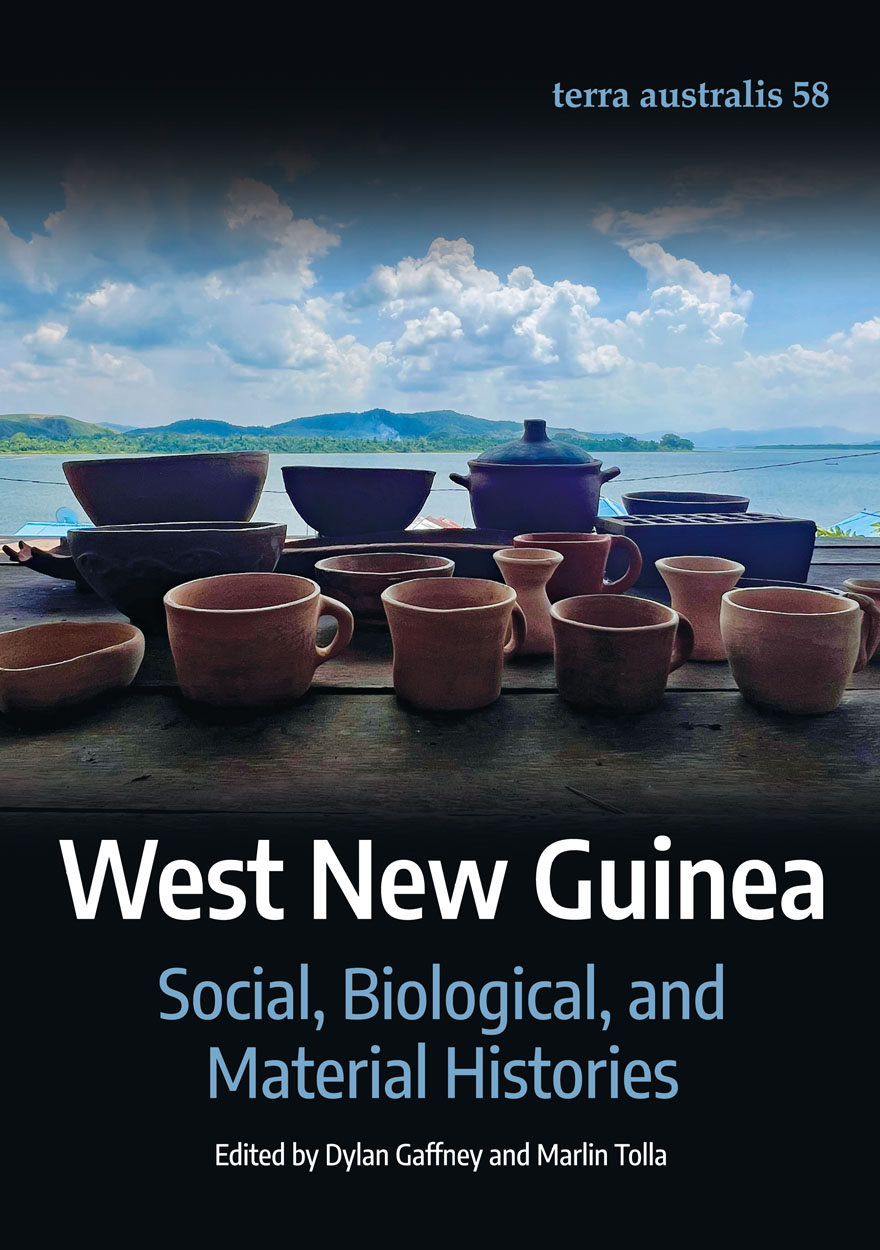
West New Guinea »
Social, Biological, and Material Histories
Edited by: Dylan Gaffney, Marlin Tolla
Publication date: February 2025
This book explores the human past in West New Guinea (otherwise known as Indonesian Papua, West Papua, or Irian Jaya). The western part of New Guinea and its surrounding islands were critical for the early peopling of the Pacific region over 50,000 years ago, when Homo sapiens moved out of Africa and into Asia, seafaring through the islands of Wallacea as far as New Guinea, the Bismarck Archipelago, and the Solomon Islands. After arriving on the shores of West New Guinea, people adapted to diverse environments including coral reefs, tropical rainforests, swamps, montane cloud forests, and savannah grasslands. Over millennia, people transformed these habitats by burning and cutting the forests, translocating plants and animals, and managing access to resources. Food production later emerged in the region as the global climate warmed up around 10,000 years ago. Between 4000–3000 years ago, the Austronesian languages began to enter West New Guinea, with its speakers settling around the coasts and offshore islands. New forms of exchange connected people and, particularly within the last 2000 years, drew West New Guinea into global networks. The objects produced and traded at ethnographic contact—like pottery, stone axes, string bags, shell ornaments, and wooden carvings—can be informative about these networks, but they are increasingly changing as people navigate and transform their material worlds in the present. The examination of these objects in museums not only casts light on their makers, traders, and collectors, but also highlights the ongoing connections that Papuans have with their material culture in the twenty-first century.
The 22 chapters in this book contribute novel perspectives and critical data on each of these themes. The authors come from archaeology, social anthropology, biological anthropology, linguistics, museology, palaeoecology, and beyond. They write about a wide array of West New Guinea’s regions, including the highlands, north and south coasts, Bird’s Head Peninsula, Cenderawasih Bay, and the Raja Ampat Islands.
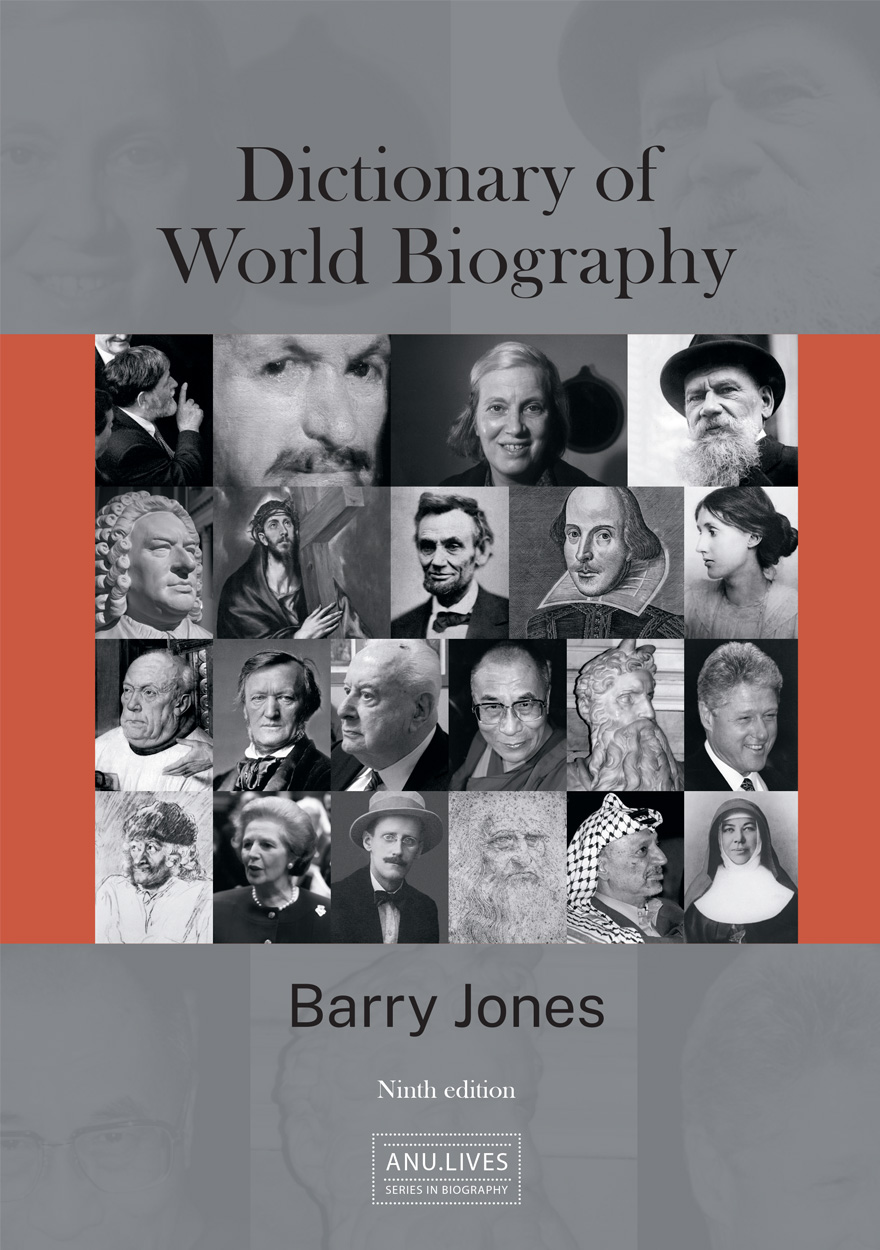
Dictionary of World Biography »
Tenth edition
Authored by: Barry Jones
Publication date: January 2025
Jones, Barry Owen (1932– ). Australian politician, writer and lawyer, born in Geelong. Educated at Melbourne High School and Melbourne University, he was a public servant, high school teacher, television and radio performer, university lecturer and lawyer before serving as a Labor MP in the Victorian Parliament 1972–77 and the Australian House of Representatives 1977–98. He took a leading role in reviving the Australian film industry and abolishing the death penalty in Australia, and was the first politician to raise public awareness of global warming, the ‘post‑industrial’ society, the IT revolution, biotechnology, the rise of ‘the Third Age’ and the need to preserve Antarctica as a wilderness. In the Hawke Government, he was Minister for Science 1983–90, Prices and Consumer Affairs 1987, Small Business 1987–90 and Customs 1988–90. He became a member of the Executive Board of UNESCO, Paris 1991–95 and National President of the Australian Labor Party 1992–2000, 2005–06. He was Deputy Chairman of the Constitutional Convention 1998. His books include Decades of Decision 1860– (1965), Joseph II (1968), Age of Apocalypse (1975) and Knowledge Courage Leadership: Insights & Reflections (2016), and he edited The Penalty Is Death (1968, revised and expanded 2022). His bestseller, Sleepers, Wake! Technology and the Future of Work (1982, Fourth edition published in 1995) has been translated into Chinese, Japanese, Korean, Swedish and braille.
He received a DSc in 1988 for his services to science and a DLitt in 1993 for his work on information theory. Elected FTSE (1992), FAHA (1993), FAA (1996) and FASSA (2003), he is the only person to have become a Fellow of four of Australia’s five learned Academies. Awarded an AO in 1993, named as one of Australia’s 100 ‘living national treasures’ in 1997, he was elected a Visiting Fellow Commoner of Trinity College, Cambridge in 1999. His autobiography, A Thinking Reed, was published in 2006 and The Shock of Recognition, about music and literature, in 2016. In 2014 he received an AC for services ‘as a leading intellectual in Australian public life’. What Is to Be Done was published in 2020.
Format: Hardback
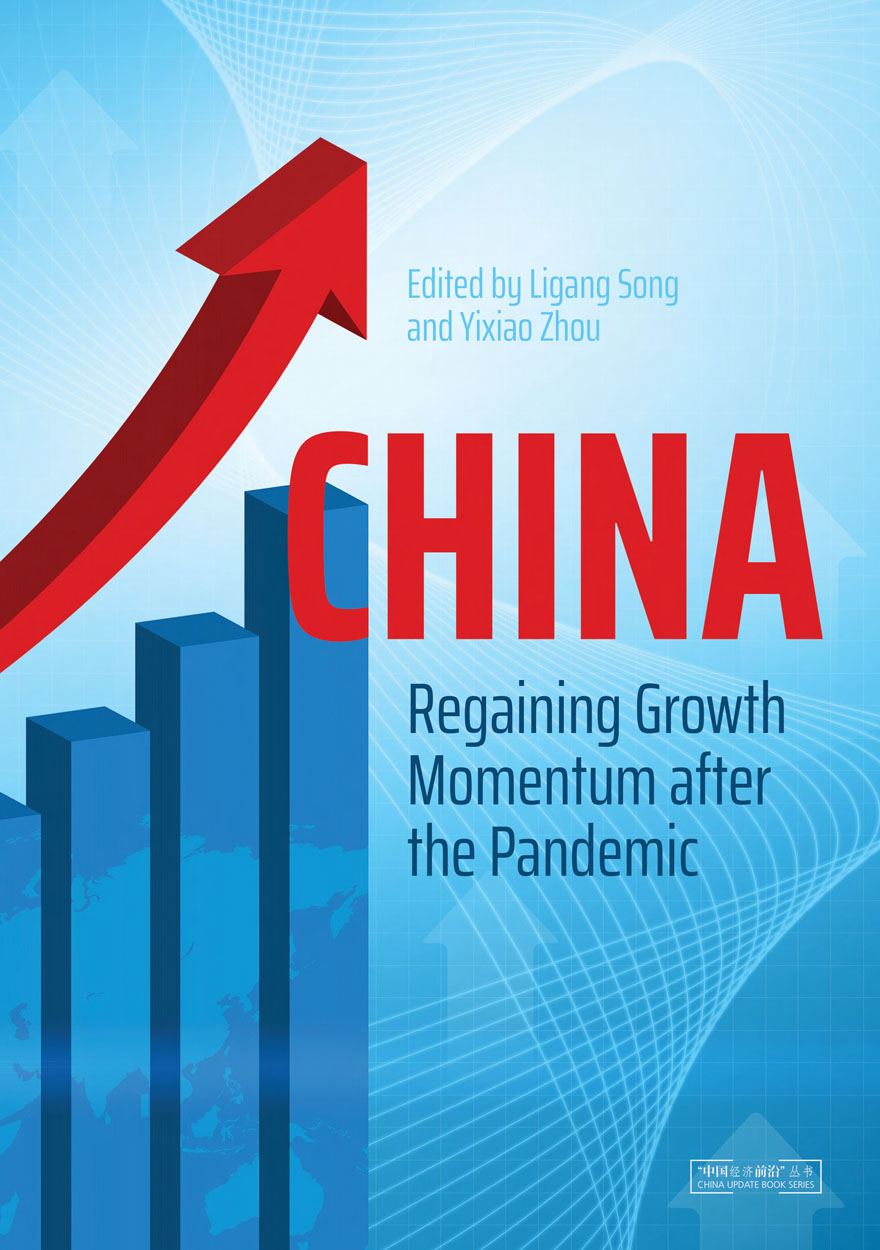
China: Regaining Growth Momentum after the Pandemic »
Edited by: Ligang Song, Yixiao Zhou
Publication date: December 2024
The slower growth of the Chinese economy in the aftermath of the pandemic has prompted the Chinese Government to adopt measures to boost domestic consumption and deepen structural reform, with the effectiveness of such policies beginning to be felt. However, China still faces challenges that will affect its growth dynamics down the track. These include the slowdown of its real estate sector, the complex internal and external environments for macroeconomic policy, the high level of income inequality, weak growth in investment by the private sector, negative population growth, high levels of debt, deglobalisation, weakness in the financial sector and equity markets, the inadequacy of its fiscal system and the imperative to decarbonise the economy. China must confront these challenges to maintain growth momentum and achieve higher levels of income and living standards.
The theme of the 2024 China Update book is China: Regaining Growth Momentum after the Pandemic. It discusses some of the challenges and policy issues that are being watched with keen interest by decision-makers and markets alike, including: What are the obstacles to economic growth in the aftermath of the pandemic and how can these be overcome? What are the key challenges and opportunities for China to move to the next level of development against the backdrop of negative population growth? Is it time for a Tax-Sharing System Reform 2.0 to consolidate China’s fiscal position? What are the challenges facing China’s small and medium enterprises? How is China’s business environment faring, and what are the implications for investment? How does China’s urban housing affordability impact its low fertility rate? How will the trade conflict between China and the United States play out regarding semiconductors and other high-tech products? How does China–Africa bilateral agricultural trade impact on African rural transformation?
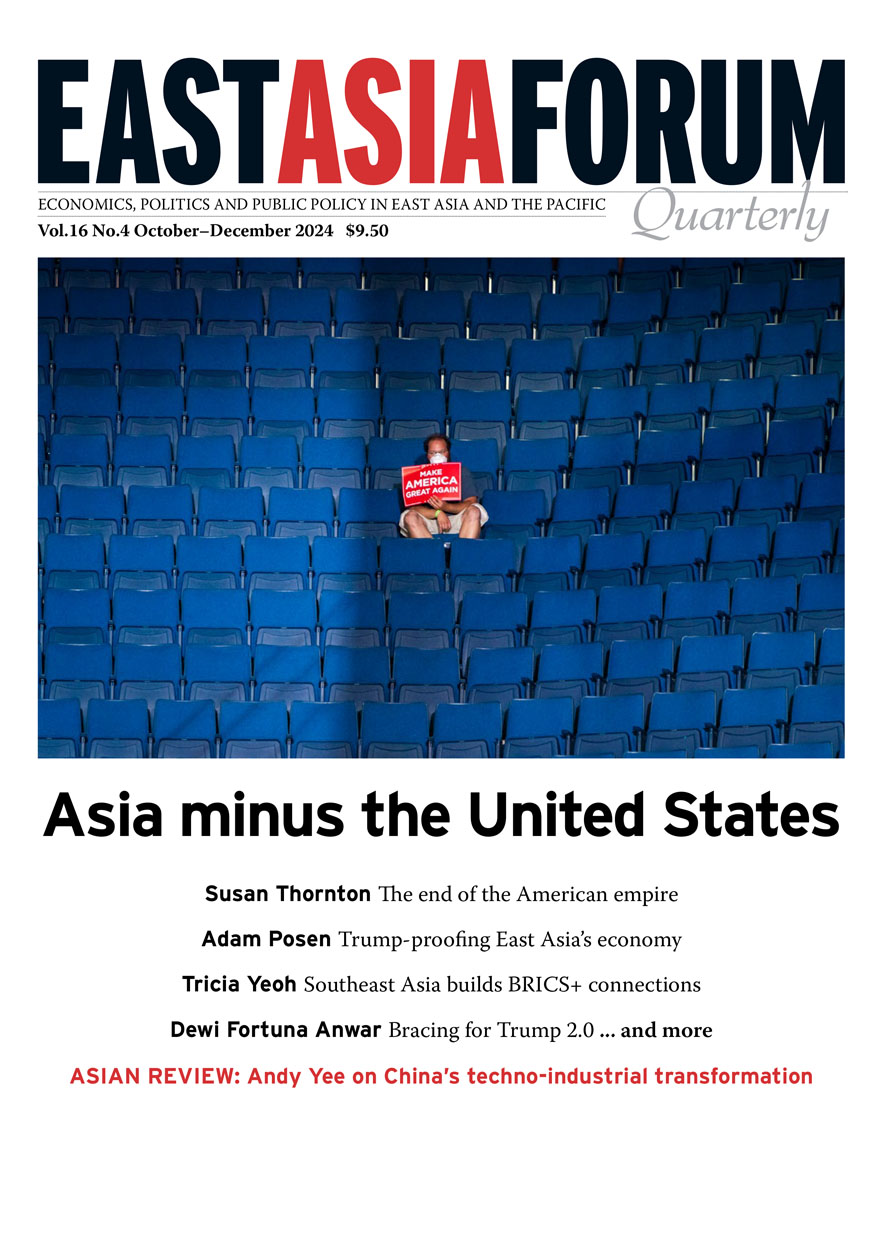
East Asia Forum Quarterly: Volume 16, Number 4, 2024 »
Publication date: December 2024
The global economy’s trajectory toward instability has been evident since Trump 1.0. A second Trump presidency will likely amplify protectionism, strategic competition and global disorder. This edition of East Asia Forum Quarterly examines how Asia can respond, emphasising the region’s role in defending multilateralism, addressing climate change and ensuring global stability.
Download for free
Not available for purchase

Enabling Learning »
Language Teaching for Australian Universities
Publication date: December 2024
Enabling Learning: Language Teaching for Australian Universities illuminates efforts by tertiary language educators to facilitate the learning of languages at the university level. The educators’ endeavours recounted in this volume address a range of specific aspects of the language learning experience or language teaching within tertiary education institutions. The chapters offer an overview of learning approaches and experiences, from the beginner to the advanced level, of different learning environments, from the traditional to online and hybrid, and of different languages, from Indigenous to European to East Asian. This work foregrounds the relevance of improved accessibility to language learning in the university context, presents innovative educational solutions informed by the examination of specific contexts, and asserts the importance of developing intercultural competence.

A Grammar of Warlmanpa »
Authored by: Mitchell Browne
Publication date: November 2024
As spoken by Bunny Naburula, Danny Cooper, Dick Foster, Donald Graham, Doris Kelly, Elizabeth Johnson, George Brown, Gladys Brown, Jack Walker, Jessie Cooper, Jimmy Newcastle, Julie Kelly, Lofty Japaljarri, Louie Martin, May Foster, Norah Graham, Penny Kelly, Penny Williams, Selina Grant, Susannah Nelson, Topsy Walker, Toprail Japaljarri and William Graham.
This volume is a descriptive analysis of Warlmanpa, a highly endangered language traditionally spoken northwest of the town of Tennant Creek, where most of the remaining speakers now live.
This grammatical description is based on language work carried out by community members and linguists since 1952, and is the first published reference grammar of the language.
The major areas of analysis include phonetics, phonology, morphology, and syntax. This volume also provides description of typologically notable features, including: a two-way stop contrast at each place of articulation; a complex second-position auxiliary system containing participant and tense/mood/aspect information; associated motion; and a lack of evidence for noun phrases.
This volume lays the foundation for future Warlmanpa language work.



